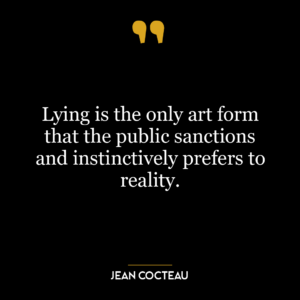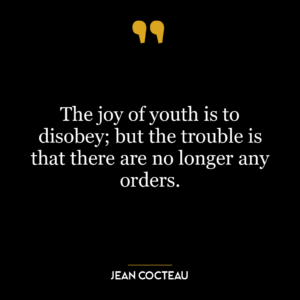Language creates reality. Words have power. Speak always to create joy.” This quote emphasizes the profound influence of language and words on our perception of reality, our emotions, and our actions.
The first part, “Language creates reality,” suggests that the words we use can shape our understanding and experience of the world around us. It’s a reflection of the concept called linguistic relativity, or the Sapir-Whorf hypothesis, which proposes that the structure of a language affects its speakers’ worldview or cognition. Essentially, our words give form and shape to our thoughts and ideas, thereby creating our personal reality.
The second part, ”Words have power,” builds on the first by highlighting the potent influence words can have. Words can inspire, motivate, hurt, heal, and transform. They can incite revolutions or broker peace. They are not just mere sounds or letters, but powerful tools that can change attitudes, behaviors, and even the course of history.
The final part, “Speak always to create joy,” is a call to action. It encourages us to use our words consciously to bring about positive emotions, not just in ourselves but also in others. This doesn’t mean ignoring or glossing over negative situations, but rather choosing to approach them with a positive, constructive, and solution-oriented language.
Today, this quote is particularly relevant in the context of social media and digital communication. The words we use online can spread rapidly and have a significant impact, for better or worse. Therefore, it’s essential to choose our words carefully and use them to promote understanding, empathy, and joy, rather than division and negativity.
In terms of personal development, this quote encourages us to be mindful of our self-talk. The language we use to describe ourselves and our experiences can shape our self-perception and self-esteem. By choosing positive, empowering words, we can foster a more positive mindset and reality for ourselves. It also reminds us that we have the power to influence others’ emotions and perceptions through our words, highlighting the importance of effective and compassionate communication in our personal and professional relationships.















